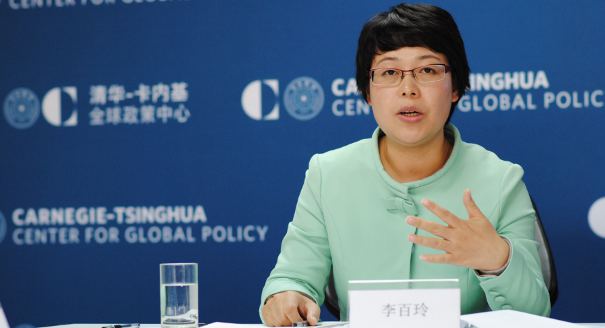{
"authors": [
"Zhang Lihua"
],
"type": "event",
"centerAffiliationAll": "",
"centers": [
"Carnegie Endowment for International Peace",
"Carnegie China"
],
"collections": [
"China’s Foreign Relations",
"U.S.-China Relations"
],
"englishNewsletterAll": "",
"nonEnglishNewsletterAll": "",
"primaryCenter": "Carnegie China",
"programAffiliation": "",
"programs": [],
"projects": [],
"regions": [
"North America",
"United States",
"East Asia",
"China"
],
"topics": [
"Foreign Policy"
]
}
American Soft Power and Cultural Diplomacy
Fri, April 11th, 2014
Beijing, China
As the international political and economic balance shifts, political leaders are placing increasing emphasis on the importance of cultural diplomacy and international communication. However, questions remain about how a nation's soft power, cultural values, and sense of moral authority can impact its foreign policy and international influence. Carnegie–Tsinghua’s Zhang Lihua hosted a panel with international and Chinese scholars and experts to discuss the global influence of American soft power. They also assessed how China can better use cultural diplomacy as a tool for its own foreign policy.
Discussion Highlights
- Soft Power Strategy: A panelist explained that U.S. cultural diplomacy is a combination of strategic design, influenced in part by the American military and the spread of human rights and civil society, and the spreading role of American international companies such as McDonalds and Coca-Cola. Participants agreed that the United States has historically used soft power during international political turmoil to assert their role as a global leader.
- Promoting American Ideals: Several U.S. panelists noted that the United States uses cultural diplomacy in order to promote American ideals of individuality, tolerance, and opportunity. Government-sponsored culture-sharing agencies mainly seek to facilitate relationships with non-Americans and ensure open access to American culture, from movies to clothing to ideas. Chinese participants added that the Chinese people must espouse a clear set of core values in their interactions abroad and that the government should not play a prominent role in cultural diplomacy.
- Cultural Exchange Success: Panelists stated that U.S. cultural exchanges, especially the Fulbright program, are critical to spreading U.S. soft power. The United States also places a lot of importance on media and exporting pop culture. Chinese participants noted that U.S. pop culture has become global pop culture. Panelists agreed that cultural exchanges must promote lasting ties and that one-off programs are often a weak point of U.S. cultural diplomacy.
- Public-Private Partnerships: Panelists discussed how the fact that the United States does not have a counterpart to the Chinese Ministry of Culture affects its soft power. The United States, they said, relies on public-private partnerships for the spread of cultural diplomacy. These partnerships often combine a political agenda, commercial agenda, and people-to-people initiatives. Examples of public-private partnerships include the 100,000 Strong Foundation in the United States, which supports U.S. students studying abroad in China, and Ping Pong Productions, which is a foundation that brings China and the United States together through the arts.
- Lack of Accessibility: U.S. panelists pointed out a lack of access in China creates a major challenge for U.S. cultural diplomacy in the country. For example, the Chinese embassy in the United States has control over China’s Confucius Institutes and CCTV is widely available in the United States. However, this amount of access is not reciprocated for U.S. organizations in China. U.S. panelists agreed that Americans need to seek more opportunities to connect personally with the Chinese.
Discussants Included: Jesse Curtis, Alison Friedman, Zhao Kejin, Xing Yue, Liu Yu, Li Bailing
Carnegie does not take institutional positions on public policy issues; the views represented herein are those of the author(s) and do not necessarily reflect the views of Carnegie, its staff, or its trustees.
Event Speaker
Zhang Lihua
Former Resident Scholar, Carnegie-Tsinghua Center for Global Policy
Zhang Lihua was a resident scholar at the Carnegie-Tsinghua Center until June 2020.
